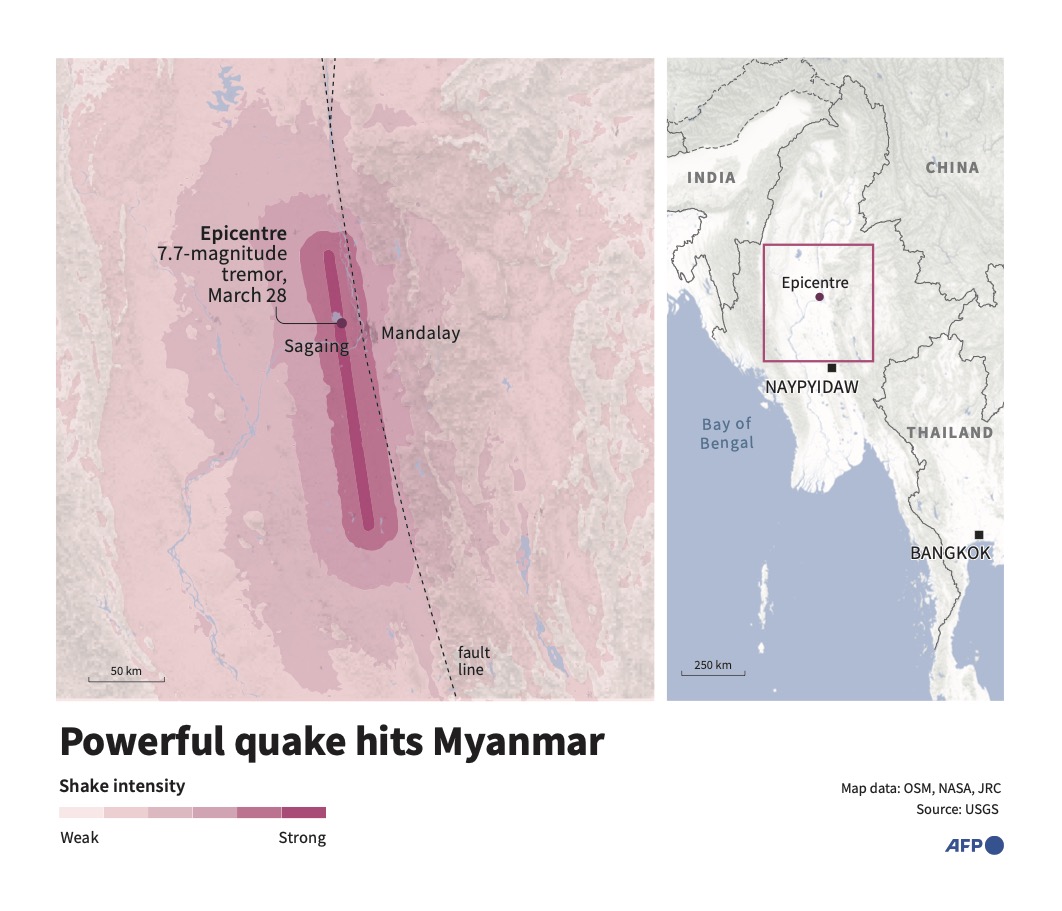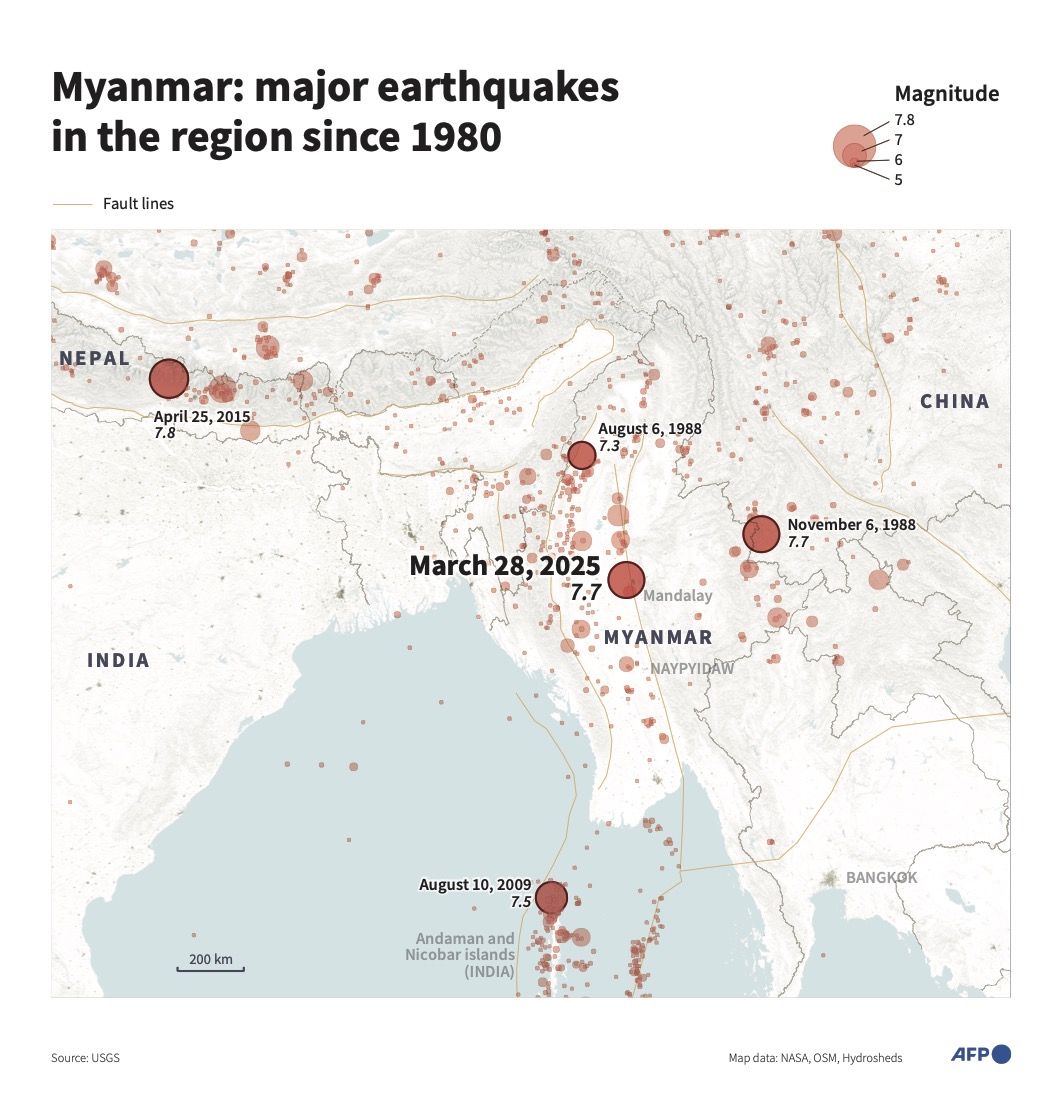NAIROBI: Rescuers are searching for more than 100 migrants off the coast of Djibouti after smugglers forced them to jump into the sea, the UN migration agency said on Wednesday.
At least 45 bodies have been recovered from Tuesday’s incident, a death toll that makes 2024 the deadliest year on record for sea crossings on the migration route between East Africa and Yemen, the International Organization for Migration said.
Another 154 people have been rescued from the two boats, which left Yemen for Djibouti with a total of 310 passengers, IOM said in a statement.
“Ongoing search and rescue operations are underway by the Djiboutian Coast Guard to locate the missing migrants,” it said.
Every year, hundreds of thousands of people leave the Horn of Africa in pursuit of better economic prospects in Gulf nations via the so-called Eastern Route, described by the IOM as one of the world’s busiest and riskiest migration corridors.
Survivors told IOM that they were forced off the two vessels by the boat operators in the open sea off the coast of Obock, a port town in Djibouti.
The survivors included a four-month-old infant whose mother drowned, the agency said.
Many migrants on the Eastern Route end up trapped in violence-wracked Yemen and attempt to return to Djibouti.
Rescuers race to find over 100 migrants missing off Djibouti coast
https://arab.news/barg6
Rescuers race to find over 100 migrants missing off Djibouti coast

- Every year, hundreds of thousands of people leave the Horn of Africa in pursuit of better economic prospects in Gulf nations
Taliban leader says there is no need for Western laws in Afghanistan

- The Taliban leader says there is no need for Western laws in Afghanistan and that democracy was dead as long as sharia laws are in effect
- Hibatullah Akhundzada made the remarks Sunday in a sermon marking the Islamic holiday of Eid Al-Fitr in the southern city of Kandahar
Hibatullah Akhundzada made the comments in a sermon marking the Islamic holiday of Eid Al-Fitr, in the southern city of Kandahar’s Eidgah Mosque. The 50-minute audio of his message was published on X by the Taliban government’s chief spokesman Zabihullah Mujahid.
“There is no need for laws that originate from the West. We will create our own laws,” Akhundzada said, speaking in Pashto, while emphasizing the importance of Islamic laws.
The Taliban’s interpretation of sharia has led to bans on Afghan women and girls, who have been excluded them from education, many jobs and most public spaces. Such measures have isolated the Taliban on the world stage, although they have established diplomatic ties with countries including China and the United Arab Emirates.
Akhundzada has taken a stronger hand in directing policy since the Taliban seized control of the country in 2021, despite some officials initially promising a more moderate rule.
Akhundzada on Sunday criticized the West, saying non-believers had united against Muslims and that the US and others were united in their hostility toward Islam, citing the Israel-Hamas war in Gaza.
Democracy had come to an end in Afghanistan and sharia was in effect, he said, adding that supporters of democracy were trying to separate the people from the Taliban government.
The Taliban have no credible opposition inside or outside the country, but some senior figures within the administration have criticized the leadership’s decision-making process and concentration of power in Akhundzada’s circle.
Some Taliban want greater engagement with the international community and scrapping harsher policies to attract more outside support. In recent months, however, there has been increased engagement between the Taliban and the US under President Donald Trump, mostly because of prisoner exchanges and releases.
Israel’s Netanyahu says to visit Hungary April 2 despite war crimes warrant

- Orban extended an invitation to Netanyahu despite the ICC’s arrest warrant issued last year
Jerusalem: Israeli Prime Minister Benjamin Netanyahu will visit Hungary on April 2, his office said on Sunday, defying an International Criminal Court (ICC) arrest warrant issued over alleged war crimes in Gaza.
During his visit, Netanyahu is set to hold talks with Hungarian Prime Minister Viktor Orban and other senior Hungarian officials before returning to Israel on April 6.
Orban extended an invitation to Netanyahu despite the ICC’s arrest warrant issued last year.
One day after the ICC decision in November, Netanyahu thanked Orban for his show of “moral clarity” in extending the invitation.
Netanyahu’s office at the time published what it said was a letter from Orban in which the Hungarian premier denounced the ICC decision as a “shameful” move.
The ICC issued warrants for Netanyahu and former defense minister Yoav Gallant over allegations of crimes against humanity and war crimes — including starvation as a method of warfare — in Israel’s war against Hamas in Gaza.
The war was sparked by the militant Palestinian groups attack against Israel on October 7, 2023.
Hungary signed the Rome Statute, the international treaty that created the ICC, in 1999 and ratified it two years later during Orban’s first term in office.
However, Budapest has not promulgated the associated convention for reasons of constitutionality and therefore asserts it is not obliged to comply with ICC decisions.
2 killed and dozens wounded in Russian attack on Kharkiv

- Ukrainian officials say two people were killed when Russian drones struck a military hospital, shopping center and apartment buildings in Kharkiv late Saturday
- The Ukrainian Air Force reported intercepting 65 of 111 Russian drones
KYIV: Russian drones hit a military hospital, shopping center, apartment blocks and other buildings in Kharkiv late Saturday, killing two people and wounding 30 others, Ukrainian officials said.
Regional Gov. Oleh Syniehubov said that a 67-year-old man and a 70-year-old woman were killed in the attack on Ukraine’s second-largest city.
Ukraine’s General Staff denounced the “deliberate, targeted shelling” of the military hospital. Among the casualties were “servicemen who were undergoing treatment,” it said.
The Ukrainian Air Force reported that Russia fired 111 exploding drones and decoys in the latest wave of attacks overnight into Sunday. It said 65 of them were intercepted and another 35 were lost, likely having been electronically jammed.
Russia’s Ministry of Defense, meanwhile, said its air defense systems shot down six Ukrainian drones.
According to Ukrainian government and military analysts, Russian forces are preparing to launch a fresh military offensive in the coming weeks to maximize pressure on Ukraine and strengthen the Kremlin’s negotiating position in ceasefire talks.
The science behind the powerful earthquake in Myanmar and Thailand

- Myanmar lies on boundary between two tectonic plates, is one of world’s most seismically active countries
- Friday’s event was “probably the biggest” to hit Myanmar’s mainland in three quarters of a century, experts said
SINGAPORE: A powerful earthquake of magnitude 7.7 centered in the Sagaing region near the Myanmar city of Mandalay caused extensive damage in that country and also shook neighboring Thailand on Friday.
How vulnerable is Myanmar to earthquakes?
Myanmar lies on the boundary between two tectonic plates and is one of the world’s most seismically active countries, although large and destructive earthquakes have been relatively rare in the Sagaing region.
“The plate boundary between the India Plate and Eurasia Plate runs approximately north-south, cutting through the middle of the country,” said Joanna Faure Walker, a professor and earthquake expert at University College London.
She said the plates move past each other horizontally at different speeds. While this causes “strike slip” quakes that are normally less powerful than those seen in “subduction zones” like Sumatra, where one plate slides under another, they can still reach magnitudes of 7 to 8.

Why was Friday’s quake so damaging?
Sagaing has been hit by several quakes in recent years, with a 6.8 magnitude event causing at least 26 deaths and dozens of injuries in late 2012.
But Friday’s event was “probably the biggest” to hit Myanmar’s mainland in three quarters of a century, said Bill McGuire, another earthquake expert at UCL.
Roger Musson, honorary research fellow at the British Geological Survey, told Reuters that the shallow depth of the quake meant the damage would be more severe. The quake’s epicenter was at a depth of just 10 km (6.2 miles), according to the United States Geological Survey.
“This is very damaging because it has occurred at a shallow depth, so the shockwaves are not dissipated as they go from the focus of the earthquake up to the surface. The buildings received the full force of the shaking.”
“It’s important not to be focused on epicenters because the seismic waves don’t radiate out from the epicenter — they radiate out from the whole line of the fault,” he added.

How prepared was Myanmar?
The USGS Earthquake Hazards Program said on Friday that fatalities could be between 10,000 and 100,000 people, and the economic impact could be as high as 70 percent of Myanmar’s GDP.
Musson said such forecasts are based on data from past earthquakes and on Myanmar’s size, location and overall quake readiness.
The relative rarity of large seismic events in the Sagaing region — which is close to heavily populated Mandalay — means that infrastructure had not been built to withstand them. That means the damage could end up being far worse.
Musson said that the last major quake to hit the region was in 1956, and homes are unlikely to have been built to withstand seismic forces as powerful as those that hit on Friday.
“Most of the seismicity in Myanmar is further to the west whereas this is running down the center of the country,” he said.
US woman released by Taliban in Afghanistan

- Hall was detained in Feb. along with Peter and Barbie Reynolds, in their 70s
- Group was traveling to British couple’s home in central Bamiyan province
WASHINGTON: An American woman has been freed by the Taliban in Afghanistan after she, two Britons and their Afghan translator were detained earlier this year, Washington’s former envoy to Kabul, Zalmay Khalilzad, said Saturday.
“American citizen Faye Hall, just released by the Taliban, is now in the care of our friends, the Qataris in Kabul, and will soon be on her way home,” Khalilzad, who has been part of a US delegation working on Taliban hostage releases, wrote on X.
While at the Qatari embassy in Kabul, Hall “has been confirmed in good health after undergoing a series of medical checks,” said a source with knowledge of the release.
She was released on Thursday following a court order and with logistical support from Qatar, the source added.
Hall, who has been identified by the Taliban’s interior ministry as Chinese-American, was detained in February along with Peter and Barbie Reynolds, who are in their 70s, as they traveled to the British couple’s home in central Bamiyan province.
Their Afghan translator was additionally arrested.
Taliban officials have refused to detail the reasons for their arrest, but one report said Hall had been detained on charges of using a drone without authorization.
In his announcement, Khalilzad posted a picture of Hall smiling with Qatar representatives ahead of her departure from Afghanistan.
Khalilzad had been in the Afghan capital earlier this month on a rare visit by US officials to meet Taliban authorities, accompanying US hostage envoy Adam Boehler.
Following their visit, the Taliban government announced the release of US citizen George Glezmann after more than two years of detention, in a deal brokered by Qatar.
He and Hall are among several Americans to be released from Taliban custody this year.
In January, two Americans detained in Afghanistan — Ryan Corbett and William McKenty — were freed in exchange for an Afghan fighter, Khan Mohammed, who was convicted of narco-terrorism in the United States.
At least one other US citizen, Mahmood Habibi, is still held in Afghanistan.
The British couple detained with Hall remain in Taliban custody.
Their daughter has expressed grave fears for her father’s health and appealed to the Taliban authorities to free them.
The Reynolds, who married in Kabul in 1970, have run school training programs in the country for 18 years.
They remained in Afghanistan after the Taliban takeover in 2021 when the British embassy withdrew its staff.
The government in Kabul is not recognized by any country, but several, including Russia, China and Turkiye, have kept their embassies open in the Afghan capital.
Qatar, too, has maintained diplomatic channels with the Taliban and has facilitated negotiations for the release of US hostages.
Since US President Donald Trump’s reelection, the Kabul government has expressed hopes for a “new chapter” with Washington.














